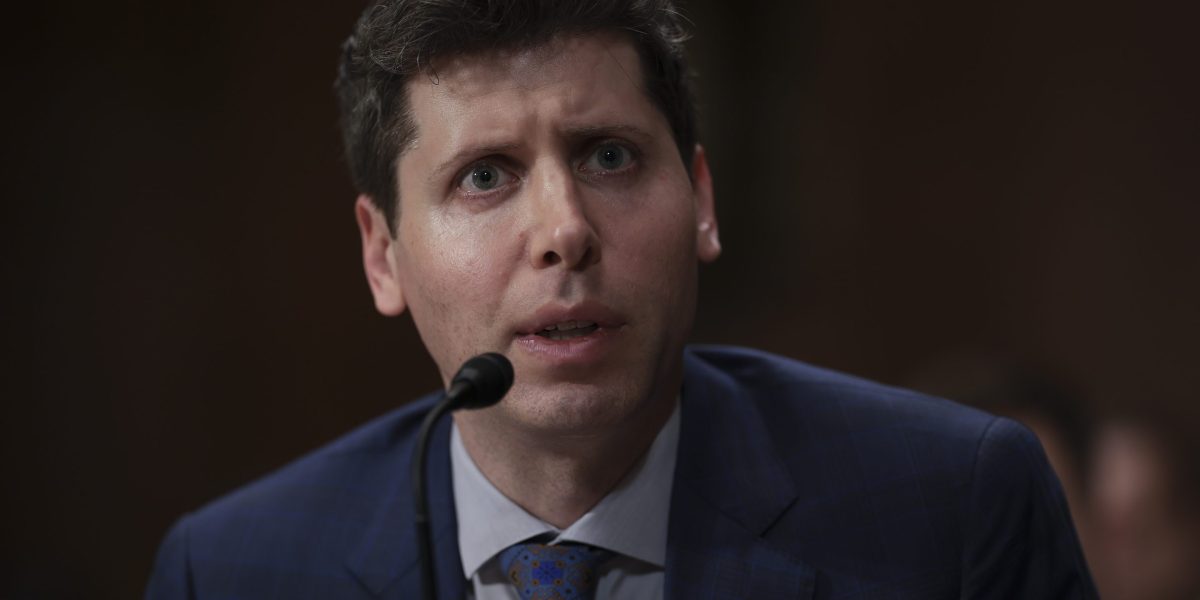
OpenAI cofounder and CEO Sam Altman detailed steps that the private and public sectors should take to ensure that a “democratic AI” will prevail over an “authoritarian AI” model.
In a Washington Post op-ed Thursday, he said control of artificial intelligence is the “urgent question of our time” and means the world must confront a strategic choice.
“Will it be one in which the United States and allied nations advance a global AI that spreads the technology’s benefits and opens access to it, or an authoritarian one, in which nations or movements that don’t share our values use AI to cement and expand their power?” Altman wrote.
“There is no third option—and it’s time to decide which path to take. The United States currently has a lead in AI development, but continued leadership is far from guaranteed. Authoritarian governments the world over are willing to spend enormous amounts of money to catch up and ultimately overtake us.”
He noted that Russian President Vladimir Putin has said the winner of the AI race will “become the ruler of the world” and that China plans to lead the world in AI by 2030.
Not only will such regimes use AI to perpetuate their own hold on power, but they can also use the technology to threaten others, Altman warned.
If authoritarians grab the lead in AI, they could force companies in the U.S. and elsewhere to share user data and use the technology to develop next-generation cyberweapons, he said.
To prevent that from happening, he called for a U.S.-led global coalition and new strategies, highlighting four key steps:
- Develop robust security measures to ensure the coalition retains its lead in AI.
- Build “significantly larger quantities” of AI infrastructure, like data centers to power plants.
- Create a “commercial diplomacy policy” that lays out AI export controls and foreign investment rules.
- Establish models for the world to set norms for developing and deploying AI, pointing to examples like the Internet Corporation for Assigned Names and Numbers.
“While identifying the right decision-making body is important, the bottom line is that democratic AI has a lead over authoritarian AI because our political system has empowered U.S. companies, entrepreneurs and academics to research, innovate and build,” Altman said.
Unless the democratic vision prevails, the world won’t be cause to maximize the technology’s benefits and minimize its risks, he added.
“If we want a more democratic world, history tells us our only choice is to develop an AI strategy that will help create it, and that the nations and technologists who have a lead have a responsibility to make that choice—now.”
Altman’s op-ed comes weeks after OpenAI announced retired U.S. Army Gen. Paul Nakasone’s appointment to the board’s new safety and security committee.
That drew withering criticism from NSA whistleblower Edward Snowden, who warned, “Do not ever trust OpenAI or its products.”
Meanwhile, others like Elon Musk have said that OpenAI abandoned its original purpose of developing AI that would benefit all of humanity to pursue commercial success instead.
Such fears came to head in May, when OpenAI released GPT-4o with a voice option that sounded similar to actor Scarlett Johansson’s. She said Altman asked her last September to lend her voice to the system but she declined.
“When I heard the released demo, I was shocked, angered and in disbelief that Mr. Altman would pursue a voice that sounded so eerily similar to mine that my closest friends and news outlets could not tell the difference,” Johansson said.
OpenAI said the voice was not Johansson’s but still halted the use of that option.















